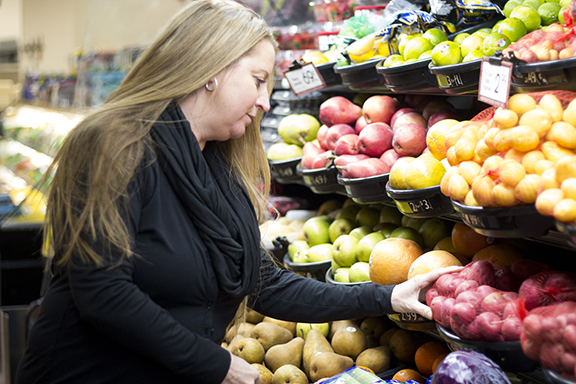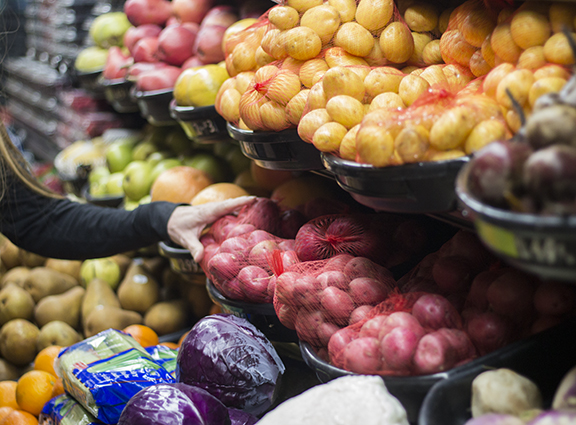Local corn isn’t the only thing that is popping about farmers markets in Spokane.
Spokane lies in the middle of a highly agricultural area, with many small farms making a living at farmers markets. These farmers markets generally offer higher quality and sustainably produced food from nearby.
Farmers markets and co-ops offer small farms the opportunity to get their products sold, as many large grocery stores won’t buy from small farms, but prefer to form contracts with large, factory style farms that don’t use sustainable practices. An exception to this is Huckleberries, a Rosauers affiliate.
“Small farms really only have three options for selling their produce,” said Brooke Reese, produce manager at the Main Market Co-op. “They can sell at a farmers market by themselves, sell to a co-op, or Huckleberries, or sell with CSA Boxes.”
CSA (Community Supported Agriculture) boxes are a system where the customer pays an upfront amount to receive a weekly or monthly box of produce directly from the farm.
Supporting these local small farmers puts money back into the local economy and helps the farmers make a living here in Spokane. Small farms are also much more capable of practicing sustainable, eco-friendly practices. They also can better produce organic, natural food.

As far as vegetarians and vegans are concerned, farmers markets and co-ops are the place to go.
“We have way more [vegetarian and vegan options],” said Reese. “Our plant based section is increasing, we have a vegan section, a faux meat and dairy section, and over the last year all that has been upped.”
However when it comes to allergies, the labeling on farm-fresh food is anything but reliable.
“Labeling is certainly not washed out or standardized,” said Reese.
If the allergy in question is to nuts, or dairy, or other foods you should be safe in the produce section. But those who are allergic to vegetables, such as tomatoes, should be careful around all vegetables at farmers markets, as farmers often store and process them together.
What farmers markets, co-ops, and their small farm suppliers do best, is organic and unusual, or heirloom varieties of produce.
“[We carry] funky specialties, like different varieties of vegetables and fruit, like the watermelon radish,” said Reese. “We get…crazy carrots that are all curly and crazy, heirloom apples, and so many other cool varieties.”
With all these benefits, what is the cost? While the produce is more expensive than mass produced crops, it is local, and the fruits and veggies are bigger, and more flavorful. The organic produce is often priced similarly, or even lower than large grocery stores however, and all that money is going back into the local economy.
“The Spokane Farmers Market helped develop several farmers’ market low-income nutrition programs in Spokane, and now utilize food stamps (EBT), and WIC & Senior nutrition coupons at the market,” according to the spokanefarmersmarket.org. “Through the market, our
vendors donate thousands of dollars worth of fresh produce to Second Harvest food bank program.”
This is relevant to our campus, as we have a Second Harvest food bank extension on campus, and we also host free farmers markets every Thursday of the month through the same organization.
For those students where money is tight, the Main Market Co-op in spokane offers a $3 dinner every Thursday. The dinner always includes a meat option, and a vegan option. It has become a weekly social event for many customers, but some even take it to go.
Main Market Co-op
Address: 44 W Main Ave, Spokane, WA 99201
Hours: Monday-Saturday: 8 a.m.-9 p.m. Sunday: 10 a.m.-7 p.m. Phone: (509) 458-2667



